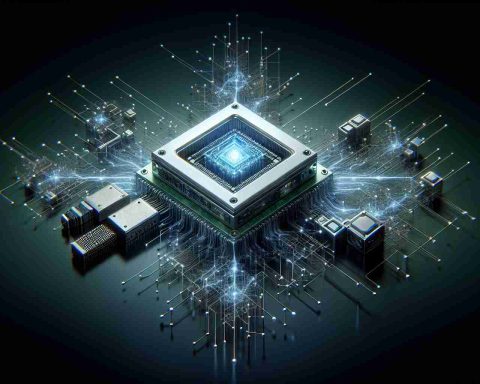In the rapidly evolving world of gaming technology, NVIDIA has consistently positioned itself as a frontrunner. As of this year, the price of NVIDIA’s stock is experiencing unprecedented growth, reflecting not just the company’s stronghold in graphics processing units (GPUs) but also its strategic advancements in emerging technologies like AI and cloud gaming.
Historically, NVIDIA’s stock performance has mirrored its dominance and innovation in the gaming sector. The surge in demand for more powerful GPUs, spurred by both professional and amateur gaming, has significantly boosted the company’s market value. Today, NVIDIA isn’t just a gaming powerhouse; its developments in AI and deep learning are setting the stage for the next era of immersive gaming experiences.
Recently, investors have shown increased confidence due to NVIDIA’s bold steps towards the future of cloud gaming. The company’s partnerships with major tech firms to deliver unparalleled cloud-based gaming solutions have opened new revenue streams and market opportunities. Coupled with advancing AI technologies that promise to revolutionize the way games are developed and played, NVIDIA’s stock surge signals a broader market belief in a tech-driven future of gaming.
The impact on gamers and the gaming industry is substantial. If NVIDIA continues its trajectory, we can expect more cutting-edge graphics capabilities and innovative gaming experiences, fueled by their pioneering work in AI and cloud infrastructures. As the landscape evolves, NVIDIA’s path will likely chart new territories for both investors and gaming enthusiasts alike.
Is NVIDIA Reshaping the Future of Gaming Beyond GPUs?
NVIDIA’s rise in the stock market is often celebrated, but the implications of this growth extend far beyond traditional gaming boundaries. While the company’s role in advancing graphics technology is well-documented, an emerging facet is how its ventures into AI and cloud services are redefining the gaming landscape—and possibly the broader technological ecosystem.
The broader consequences of NVIDIA’s advancements can be incisive. Aside from enhancing visual quality and gaming performance, NVIDIA’s AI-driven automation could potentially democratize game creation itself. This means aspiring developers could leverage NVIDIA’s tech to create complex games without needing extensive programming skills. While this could usher in a new wave of creative gaming content, it raises an important question: will traditional game development roles become obsolete as AI takes the reins?
On a community level, cloud gaming has the potential to dramatically change how people access games. By eliminating the need for high-end hardware, more users globally could join the gaming community, increasing inclusivity. Yet, this technological leap might further widen the gap between regions with robust internet infrastructure and those without, potentially leaving some communities in a digital divide.
Moreover, while NVIDIA’s stock surge is a boon for investors, it also reflects the volatile nature of tech investments. A shift in market trends or a competitor’s breakthrough could alter this trajectory, posing a risk for stakeholders highly reliant on NVIDIA’s success.
For more insights into NVIDIA’s technological strides and their societal impact, visit NVIDIA.























